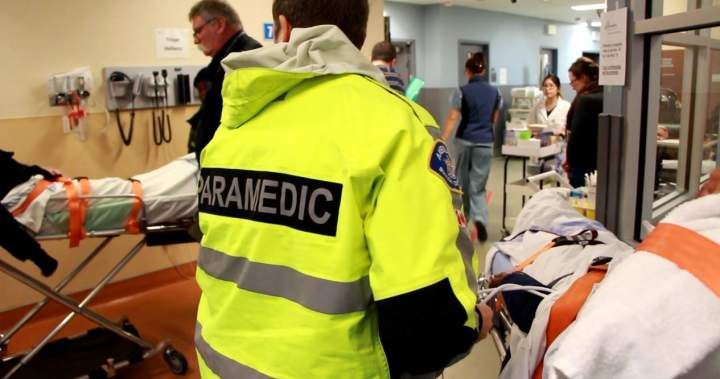B.C. to ban drug use in all public places in major overhaul of decriminalization
Drug AwarenessPosted by AI on 2025-09-01 05:10:40 | Last Updated by AI on 2025-09-03 23:37:30
Share: Facebook | Twitter | Whatsapp | Linkedin Visits: 0

The province of British Columbia, Canada, will seek to ban drug use in all public spaces, including parks and hospitals, as part of a major overhaul of its drug decriminalization pilot project, according to an announcement by Premier David Eby on Friday.
The move comes amid a debate over the province's approach to the ongoing toxic drug crisis and safe supply. Under the changes, police will be able to compel a person using drugs to leave the area, seize their drugs when necessary, or arrest them if required. The province says police will be guided only to arrest people for simple possession of drugs in exceptional circumstances.
The province faces growing scrutiny over its decriminalization program, partly due to concerns over drug use and related crime in B.C. hospitals. Under the changes, possession or use of street drugs will be prohibited in all hospitals except for designated medically-supervised addiction treatment areas. Hospital staff will also ask patients at admission if they have substance-use issues, providing medical oversight and addiction care while receiving treatment.
The province is also funding $25 million to expand the Hope to Health Research and Innovation Centre in Vancouvers Downtown Eastside, led by Dr. Julio Montaner, to provide intensive primary care to people with complex needs. Additionally, the province will expand access to opioid-agonist treatments such as methadone and suboxone.
The Official Opposition BC United called the move political damage control on a reckless experiment, promising to scrap the decriminalization pilot if elected. Vancouver Mayor Ken Sim commended the province for the changes, stating that they will make public drug use illegal and provide the city's police with the tools to maintain public safety.
Search
Categories
- Sports
- Business
- History
- Politics
- International
- Science & Technology
- Social Issues
- Disaster Management
- Current Affairs
- Education
- Startup Business
- Startup News
- Awards
- Community Services
- Fundraising Events
- Volunteer Services
- Health Initiatives
- Innovations and Initiatives
- In News
- Banners
- Awards
- Partners
- Products
- Press Releases
- News
- Fast Check
- South
- సినిమా
- Gallery
- Sunday Chronicle
- Hyderabad Chronicle
- లైఫ్ స్టైల్
- National
- క్రైం
- ట్రెండింగ్
- జాబ్స్
- అంతర్జాతీయo
- బిజినెస్
- రాజకీయం
- బిజినెస్
- సంపాదకీయం
- నవ్య
- చిత్ర జ్యోతి
- క్రీడలు
- జాతీయం
- తెలంగాణ
- తాజా వార్తలు
- మన పార్టీ
- మన నాయకత్వం
- మన విజయాలు
- డౌన్లోడ్స్
- మీడియా వనరులు
- కార్యకర్తలు
- North East Skill Center News
- Government Schemes
- Entrepreneurship Support
- Employment Opportunities
- Skill Training Programs
- Departments
- Investments
- Initiatives
- Resources
- Telangana IT Parks
- Events & Jobs
- Press Releases
- News
- Airport News
- Newtons Laws of Motion
- Karbonn in Business
- Investments in Karbonn
- Company quarterly sales
- Markets
- Auto News
- Industry
- Money
- Advertisements
- Stock target
- Company Updates
- Stock Market
- Company Sales
- Staffing and HR
- Constituency Assembly
- General News
- Srikalahasti Temple
- Bojjala Sudhir Reddy
- Technology & Innovation
- Sports
- Business
- Products
- Industries
- Services & Trainings
- Tools & Resources
- Technology Integration
- Drug Seizures & Arrests
- Telangana Narcotics
- Law & Enforcement
- Rehabilitation
- Nationwide Drug Policing
- Nigeria Seizures
- Global Operations
- Drug Awareness
- Drug Enforcement Tech
- NCB Drug Seizures
- Judicial Crackdown
- India's Surveillance Tools
- Cross-Border Links
- Women Safety
- Cyber Crimes
- Drug Abuse
- Traffic & Road Safety
- Community Connect
- Public Safety Alerts
- Citizen Assistance
- Nellore City News
- Politics & Administration
- Events & Festivals
- Agriculture & Rural
- Business & Economy
- Health & Wellness
Recent News
- Cancer Research Progress: Revolutionizing Detection and Therapy
- Mass Spectrometry Innovator Bruker Releases New Systems for Enhanced Small Molecule Analysis
- Trump Highlights Narcotics Interdiction Offload in Armed Forces Day Message
- Building Better Schools for India's Children
- The Great White Whale of Climate Coverage: Climate Change Withdrawal Disasters Escalate
- China's Fentanyl Footprint in Ohio
- Wildlife smuggling hits a nerve in India
- Hackers have been increasingly using the UK's flagship news website, Mail Online, as a platform to propagate disinformation, according to cybersecurity experts.